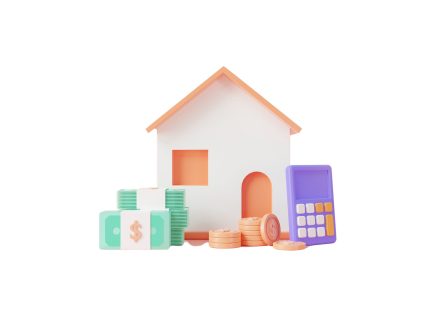First Time Buyer Mortgages
Buying your first home is an exciting, and daunting prospect. There is so much to think about and do, and when you haven’t done this before it can be bewildering.
Are you looking for a mortgage and hoping to talk to a real person? We work with a mortgage advisor who will help you navigate the current mortgage market and find the best mortgage deal for your circumstances and mortgage needs.
Buying your first home is an exciting, and daunting prospect. There is so much to think about and do, and when you haven’t done this before it can be bewildering.
Our FCA regulated mortgage broker partner is an expert at guiding first time buyers through the process of buying a home. They will start by working with you to establish all your current earnings and expenses and advise you on how much you will be able to borrow. They will walk you through the application process, step by step, ensuring you understand all the information you will need to provide.

Once they have all your information, they will survey over 60 mortgage providers and recommend the best product for you. This means you don’t have to do lots of research yourself or pour over mortgage terms and comparison sites hoping to find something you can afford – they do all of this work for you.

Once you’ve decided on your provider and your expert has obtained your Agreement in Principle for a mortgage, then comes the fun part – house hunting! When you’ve found the property for you, your mortgage expert will guide you through everything that has to happen before you move in. They can even help you to find a solicitor.

Take a look at our first time buyer frequently asked questions to help you plan your first home purchase.
The first thing to do is to find a good mortgage advisor to help you through the whole process of buying your first home. Talk to a few and see who you think you’d work best with. Look at their reviews and make a choice. It’s important you work with someone you get on with and who you trust will give you good advice when you need it.
You can talk to our mortgage advisor partner by filling in their contact us form.
Buying your first home is an expensive business and there are several fees you’ll need to pay for. Typically you’ll need to pay for:
Mortgage advisor fees. Employing a mortgage adviser is probably the best decision you’ll make. A good mortgage adviser will hold your hand through the whole process, explain everything and tell you exactly what you need to do, why and by when. Typically they charge a few hundred pounds for their services.
Mortgage product fees. Your mortgage provider will charge a fee for setting up your mortgage. Costs can vary from a few hundred pounds to around £2000 depending on the size of the mortgage and the providers policy. It is usually possible to add this fee to the amount you borrow so that it is covered.
Valuation fees. You will need to pay for a valuation of the property you want to by to make sure it’s worth what the seller is asking. Your mortgage provider will need this valuation to check that the property is worth the value of the mortgage at least.
Survey costs: You may want to have a survey of the property you want to buy to check for hidden issues with the building. The cost of a survey will vary depending on the type of survey you want. A full structural survey is more expensive that a standard survey.
The survey may uncover repairs that will need doing. It’s as well to be warned of potential repairs and the possible cost before you commit to buying the property. It might be possible to negotiate on the price you pay for the property based on the survey results if it uncovers serious issues.
A survey is optional but it’s a good idea to commission one so that you go into your purchase fully aware of costs you might incur once you own the property.
Conveyancing or solicitor fees: You will need to employ a solicitor to handle all the legal duties. They’ll ensure you get all the necessary local searches completed, draw up contracts, handle your deposit and carry out the purchase managing all the funds on completion.
They will communicate with the seller’s solicitor for you and explain all the steps of the process you need to go through.
It’s important to have a good, proactive solicitor to ensure the process is not too drawn out and all possible legal issues are dealt with promptly. You may have friends or family that can recommend a good solicitor or your mortgage advisor may be able to recommend one.
Stamp Duty. The good news is that if you are a first time buyer and the property you are buying is costing less than £425,000 you don’t have to pay any Stamp Duty.
If your first home is costing between £425,001 and £625,000 you will pay Stamp Duty equal to 5% of the property purchase price. If your first home is costing over £625,000 you will pay Stamp Duty at the home mover rate. Stamp Duty is a tax on a house purchase payable to HM Revenue and Customs via your solicitor.
Land Registry Fee. You will need to pay a fee for the Land Registry to change their records to show you as the new owner of the property you are buying. Your solicitor will organise this and let you know the costs. The fee will depend on the value of the property.
Removal costs. You might need to employ a removals company to help you move into your new home or simply hire a van and rope in friends to help. Whatever you do remember to factor in these costs.
Buildings Insurance. You will need to make sure your have buildings insurance in place from the date that you exchange contracts. From that point on you are committed to buying the property and the responsibility for the building is yours. Your mortgage provider will need you to have insurance that would cover completely rebuilding the property.
There will be lots of factors that influence whether or not this is the right property for you.
You need to assess if the location is right for you. You might need to be near to a station or bus route, and not too far from work, or you might want to be near to friends and family.
If you have pets you might want to consider how busy the road is. It’s important to visit the property at different times of day to see how traffic volumes differ and how noisy the area is at school pick up if it is near a school, or in the evening.
Have a good look at the outside of the property. Check the roof for broken tiles, have a look at the guttering and downpipes for leaks or overflow. This might cause damp problems. Check the paving outside and round thew property. Check to see if any tree roots are causing paving uplift near drains.
Check for damp patches. Look behind furniture if you can and take a good hard look at newly painted areas in walls and ceilings as they might be covering up damp problems. Check for damp or musty smells.
Check window frames for rot, especially if they are wooden. Check walls beneath windows for damp. If the window frames are uPVC check for condensation or blown seals.
Have a look at the boiler to check how old it is. New boilers are expensive!
Try and look past bad décor as you can easily change curtains, the colour of walls and carpets. Terrible decoration could be masking what is a really good house so use your imagination!